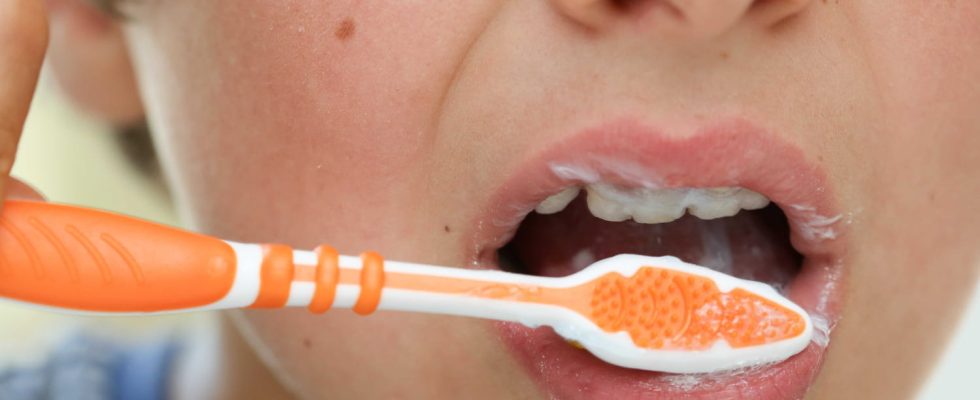Several experts advise against rinsing your teeth after brushing, for a very specific reason.
Brushing your teeth at least twice a day is recommended by all dental experts. What you may not know, however, is the best way to finish brushing. And more and more dentists are clear on this subject: you should definitely not rinse your mouth! This gesture, although inseparable from brushing your teeth in many homes, would have a deleterious effect on the protection of your precious teeth.
“When you rinse, you essentially rinse away the active ingredients of the toothpaste that you have just put on your teeth,” explains for example Margherita Fontana, professor at the University of Michigan School of Dentistry in the columns of Washington Post. Plaque is covered in certain acid-producing bacteria which, with the help of a diet high in sugar and poor oral hygiene, can cause cavities. However, fluoride helps prevent cavities by protecting teeth, mainly by helping to replace the minerals lost by the protective enamel.
Skipping rinsing after brushing would therefore allow the fluoride to remain active on the teeth for longer, thus providing them with additional protection. Advice provided in particular by Brittany Seymour, spokesperson for the American Dental Association (ADA) and associate professor at Harvard. Do you still want to rinse your mouth? Prefer a small quantity of water, or delay rinsing for around twenty minutes, assures the scientist. Another option for those who want to rinse their teeth after brushing is to use a mouthwash containing fluoride, adds Margherita Fontana.

Dental experts say the amount of fluoride that would remain on your teeth after brushing is safe, although children should always be supervised while brushing to ensure they don’t swallow too much. And what about for little ones? For children under 3 years old, brushing should be done with a dab of toothpaste, no larger than the “size of a grain of rice” according to the American Academy of Pediatric Dentistry (AAPD). For those ages 3 to 6, a pea-sized amount is enough.
Pediatric dentist and president of the AAPD, Scott Cashion, advises parents to have them “spit out” the toothpaste once their teeth are brushed, “but try not to rinse it.” “When they go to bed, if there is fluoride on their teeth, it will help protect them throughout the night,” he concludes. If you really are missing something after brushing your teeth, remember that skipping rinsing is not essential if you have healthy teeth. This mainly concerns people who follow a diet high in sugar or who often have cavities.
